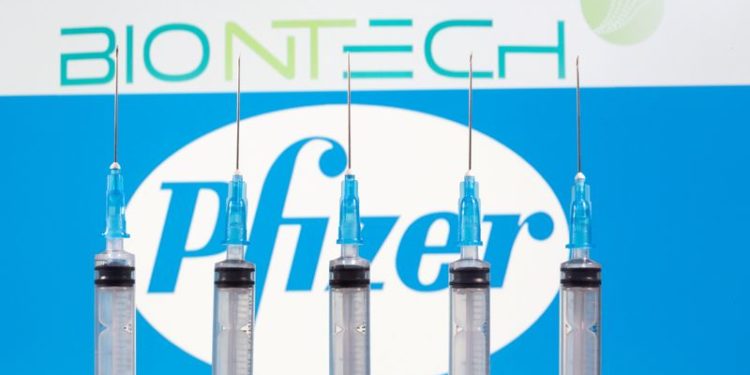THD NewsDesk, New Delhi:
Seeking an expedited approval pathway, US pharma giant Pfizer donated medical supplies worth over $70 million to India. This supply includes steroids, anticoagulants and antibiotics amid a global deadlock over vaccine patents issues.
Pfizer’s CEO Albert Bourla on Monday said that the company is in talks with the Indian government to get approval for its vaccine. “Unfortunately, our vaccine is not registered in India although our application was submitted months ago”, he posted on social media.
Amid the growing pleas from many developing nations, while the debate on patents continues, many US lawmakers and global activists have asked major pharma companies to forgo patent protection in order to address the pandemic.
“These medicines, valued at more than $70 million, will be made available immediately, and we will work closely with the government and our NGO partners to get them to where they are needed most. This effort, in combination with Pfizer foundation funding that supports humanitarian organisations providing essential and life-saving equipment to India, such as ventilators, oxygen concentrators, and consumables, is our most comprehensive humanitarian relief response ever,” Bourla added.
The firm also shed light on the fact that the supply of items that are a part of India’s current COVID-19 treatment protocol is being made from its distribution centres across the US, Europe and Asia.
“We are currently discussing with the Indian Government an expedited approval pathway to make our Pfizer-BioNTech vaccine available for use in the country,” Bourla said, adding that Pfizer employees in the US, Europe and Asia are working to ship medications that India’s government has approved as part of its COVID treatment protocol.
Experts say that the longer there is a delay in vaccinating people, the more time the virus has to mutate into variants that could make the vaccines ineffective. Adding to the intellectual property hindrance, there is a major concern over manufacturing for the population with scarce raw materials. While the US and drug-maker Gilead Sciences are helping out with Remdesivir doses, the country facing more than 350,000 cases every day needs to immunize the population with the help of effective vaccines.























